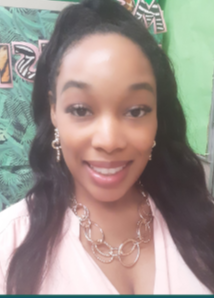
Senior Lead Educator of Humanities, English as a Second Language, & Intervention
Malissa Farrish
mfarrish@wboe.net
(609) 835-8940 ext. 6510
CURRICULUM PORTAL
Willingboro Public Schools uses a digital platform called OnCourse to house all of our curriculum guides by content area and grade level. This setup allows for instructional transparency, instantaneous curricular revisions, and vertical and horizontal mapping in all content areas. All parents and students have access to view our curricula through a Public Portal. Please use the link below to access these guides:
RESOURCES
SUMMER ENRICHMENT INFORMATION
ENGLISH LANGUAGE ARTS DEPARTMENT
The Willingboro Public Schools English Language Arts program is designed to foster a love of reading and to ensure that ALL students develop proficiency in reading, writing, speaking and listening. Our curriculum is designed to meet the College and Career Readiness standards of the New Jersey Department of Education NJSLS-ELA. The NJ standards are robust and relevant to the real world, reflecting the knowledge and understanding our students need for success in college and careers. It is our goal to establish a community of learners and informed citizens who are fully prepared for the 21st Century.
ELEMENTARY SCHOOLS (K-4)
Our elementary curriculum utilizes a balanced literacy framework in which the five components of reading (phonemic awareness, phonics, vocabulary, fluency, and comprehension) are addressed with explicit, systematic instruction. Our rigorous elementary curriculum was developed by Columbia University, Teachers College Reading and Writing Project. Students participate in a reading and writing workshop daily. The workshop model philosophy is “I do, We do, You do” and provides students with direct instruction along with opportunities for guided and independent practice. Over the past three years, our teachers have participated in extensive professional development (and coaching) on workshop teaching and using the Calkins Unit of Study series for teaching reading and writing in grade K through grade 4.
Language arts instruction at the elementary level is focused on four essential areas addressed by the NJSLS: foundational skills, close reading of complex texts, writing, and the volume of reading on relevant topics to build vocabulary and knowledge. We believe the focus around these essential areas will accelerate student literacy and lead to greater learning gains.
FOUNDATIONAL SKILLS
Research shows that students who develop a strong ability to decode language and a knowledge of spelling (and sound) patterns and regularly apply this understanding become strong, fluent readers. In Willingboro, we use Wilsons-Foundations in grades PreK to grade 2 to support our developing readers with essential foundational skills. In grades 3 and above we use Words Their Way to continue the development of foundational skills and word study in the upper grades.
CLOSE READING
The standards clearly state the importance and necessity of close reading to understand what the text says and how it says it. In Willingboro, we believe in the use of quality, complex texts. Students, along with their teachers as a guide, study and closely read complex mentor texts. Our students gain confidence and competence through multiple readings of grade-appropriate complex texts for different purposes.
VOLUME OF READING
A large body of research shows that the emphasis placed on the sheer amount of reading students do (both free choice and reading connected to the curriculum) is critical to their growth as readers and writers. The more students read, the better they read. The better they read, the more they comprehend. The more they comprehend, the higher their achievement.
WRITING INSTRUCTION
The standards place a strong emphasis on writing, therefore it is at the core of our instructional programs. The writer’s workshop model is used in all elementary classrooms. It includes explicit instruction around the process of writing along with the skills and strategies to support the specific text types addressed in the standards: narrative, opinion, and informative writing.
SECONDARY SCHOOLS (5-12)
Our comprehensive English Language Arts program is designed to help all students develop proficiency in reading, writing, speaking and listening. We have adopted a balanced literacy framework district wide aimed at guiding students towards proficient and lifelong reading. The balanced literacy approach is characterized by explicit instruction and the use of authentic texts.
Language arts instruction at the secondary level is focused on three essential areas addressed by the NJSLS: close reading of complex texts, volume of reading on relevant topics to build vocabulary and knowledge and writing. We believe the focus around these essential areas will accelerate student literacy and lead to greater learning gains.
CLOSE READING
As students advance through the grades, the importance and necessity of close reading complex texts is more apparent. Students, along with their teachers as a guide, study and closely read to analyze textual details and to deepen understanding. Our students gain confidence and competence through multiple readings of complex texts. The goal is to have students cite specific evidence when offering an oral or written interpretation of a text. Close reading strategies empower students with critical reading and writing skills.
VOLUME OF READING
A large body of research shows that the emphasis placed on the sheer amount of reading students do (both free choice and reading connected to the curriculum) is critical to their growth as readers and writers. In Willingboro, our intermediate and secondary students are encouraged to read to ignite their interest, to enlarge their world, increase their vocabulary, and foster fluency. Students read each day in their ELA class, and it is expected that they will spend additional time reading outside of school each day. Increased volume of reading will help our students build important world knowledge and acquire additional vocabulary, both of which are critical for success in college and careers.
WRITING INSTRUCTION
The ability to write well is a necessity for all students and a basic requirement for participation in civic engagement. The writer’s workshop model is used in our secondary classrooms. It is characterized by explicit instruction around the process of writing along with the skills and strategies to support the specific text types addressed in the standards: narrative, argument, and informative/explanatory writing.
